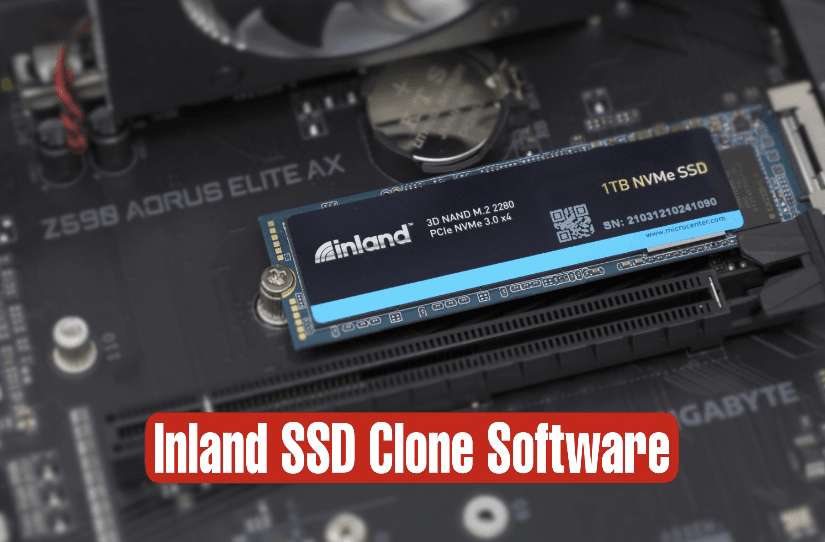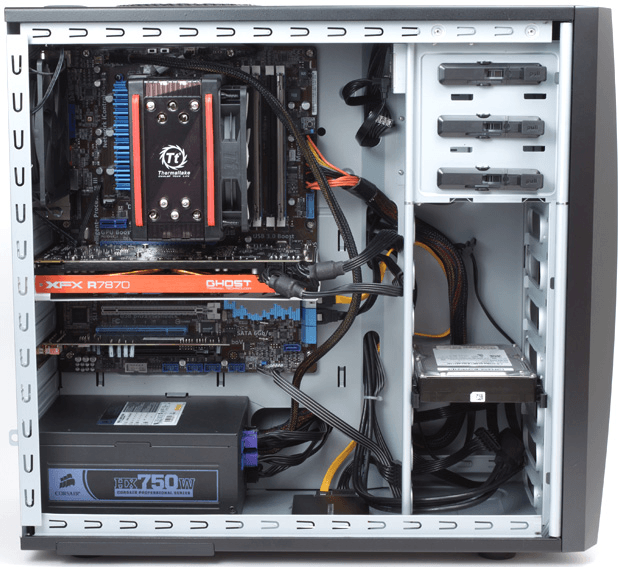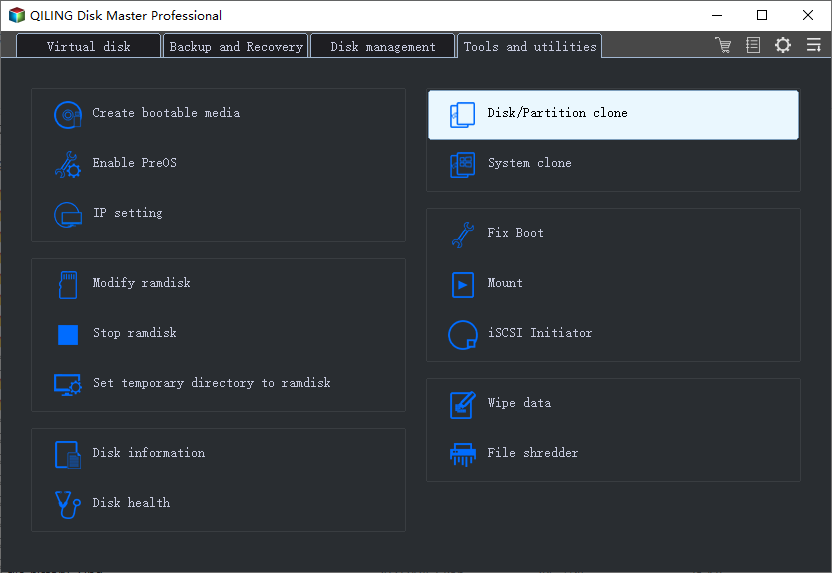Best Inland SSD Clone Software – Stay Away from Boot Issues
Quick Navigation:
- Overview of Inland SSD
- Why You Need Inland SSD Clone Software?
- The Most Reliable SSD Migration Software for Inland SSD
- Stepwise Guide to Clone HDD to Inland Professional SSD
- FAQs on Inland SSD Migration
- To Sum Up
Overview of Inland SSD
Inland is a smaller brand that is carried in-store at Micro Center. In the past ten years, we all know that any SSD is better than an HDD. This rule still exists today. So many people choose to replace their HDD with SDD to improve computer’s performance. Inland SSD is much cheaper than other brands such as SanDisk, Western Digital, Seagate, etc., which is the main reason why most users choose it.
Except for the product packaging, you can't learn the specifications of Inland SSDs from anywhere. Here, I will introduce 2 different series of Inland SSD.
| Aspect | Inland Premium 1TB NVMe SSD | Inland Professional 1TB SSD |
| Available Capacities | 256GB to 2TB | 256GB to 1TB |
| Form Factor | Single-sided M.2 2280 (80mm) | Single-sided M.2 2280 (80mm) |
| Read Speed | 3100 MB/s | 2000 MB/s |
| Sequential Write Speed | 2800 MB/s | 1600 MB/s |
| Endurance Rating | 1600TB | 75TB |
| Comparison with Competitors | Comparable performance, higher endurance | Lower performance, potentially better endurance |
| Notable Point | Excellent endurance for a 1TB SSD | More budget-friendly option |
Why You Need Inland SSD Clone Software?
“Issues with cloning boot drive
I recently purchased an Inland Premium 1TB SSD (3D NAND M.2 2280 PCIe NVMe 3.0 x4). I cloned my boot drive (C:) to it using Macrium Reflect, but when I attempt to boot off of it, I'm unsuccessful.
I noticed that one of my other drives (A:) contains Windows system files. So I tried testing the boot capability of each of my drives, and to my surprise, it looks like my system can't boot without including my A: drive in the boot priority list in BIOS. It doesn't appear to matter which order, but without it, my system won't boot. Is it possible to clone both my current C: and A: drive to my new NVMe drive, and if so, would that fix my problem?
- Question from Micro Center Community
There are many scenarios in life that require SSD clone software. The user who wants to replace the system disk in the above case is one of them. We all know that SSD provides your computer with shorter boot time, more immediate data transmission and higher bandwidth.
Regardless of the reason, it is not surprising that people are willing to convert HDDs to SSDs. There are various brands of SSDs on the market. Inland SSDs are chosen by many users because of their affordable prices. With the increase in Inland SSD usage, the demand for Inland Professional SSD clone software has gradually increased.
The Most Reliable SSD Migration Software for Inland SSD
Qiling Disk Master Professional is one of the most reliable SSD cloning software on the market. It supports all Windows PC (Windows 7/8/8.1/10/11/XP/Vista). It can help you copy all the data from one disk to another completely and ensure that the computer can start normally after cloning.
Next, I will show you how to clone HDD to Inland Professional SSD with Qiling Disk Master. Download its demo at first. If there are important data on the Inland SSD, please backup files in advance, because all the data in the destination will be overwritten in the cloning process.
- Migrate OS only from HDD to Inland SSD Drive
- Clone entire hard drive to Inland SSD
- Clone from larger disk to smaller disk via Intelligent clone
- Support all popular disk brands, Samsung, WD, Kingston, Crucial, etc.
- Support all disk interface, HDDs, SATA SSDs, NVMe SSDs, M.2 SSDs, etc.
Stepwise Guide to Clone HDD to Inland Professional SSD
Step 1. Make sure your computer is fully powered off. Unscrew and remove the side of the computer tower case. Install the Inland SSD and then restart your computer.
Step 2. Launch Inland SSD clone software Qiling Disk Master, then you will see its deep-blue screen. Click Clone and then select Disk Clone to start hard drive copy. It clones all the data on the source disk to the target disk.
Step 3. Select the original HDD on your computer as the source disk. Then, click Next.
Step 4. Select the Inland SSD as the destination path.
Step 5. Check SSD Alignment option to improve the writing & reading speed of SSD disk while cloning hard drive to SSD, then click Proceed.
Tips:
◑ Sector by Sector Clone: it allows you to clone all sectors of a hard drive including bad sectors and empty sectors.
◑ Edit Partitions: you can adjust partition size of destination disk with this feature to fix the problem that cloned hard drive show wrong size when you clone disk to larger disk.
❔ The Sector by Sector Clone and Edit Partitions cannot be used together. And it's suggested to use the latter if you are in the following two situations.
#1: The cloned drive not show full capacity.
By default, all the cloning software makes an exact copy of the source disk, as a result, the clone drive does not show full capacity after cloning. If the target disk is larger, please try the following 3 options in the Edit Partitions. And the last two options are available on the Professional version.
- Copy without resizing partitions: It will not resize the partition size.
- Add unused space to all partitions: It will reallocate the unallocated space to each partition of the target disk, appropriate for the disk size.
- Manually adjust partition size: It allows you to extend unallocated space to any partition on the destination disk you want.
#2: The cloned drive not bootable after cloning.
One of the biggest reason is the destination and source disk has different partition style and you don't convert them to the same before cloning. In this situation, you can simply check Convert the destination disk from MBR to GPT or vice versa, depending on the disk partition styles of them.
Step 6. After cloning is complete, set the cloned SSD as the first boot priority in the BIOS to boot from it.
FAQs on Inland SSD Migration
Inland may not provide specific migration software, but you can use third-party tools like Qiling Disk Master compatible with SSD migrations.
If your old drive is larger, you'll need to shrink partitions to fit the SSD's capacity before migrating. Or you can use the Intelligent Clone method in Qiling Disk Master.
It's unlikely. Windows activation is generally tied to the motherboard, not the storage drive.
It's not recommended. Fix the bad sectors on your HDD before migrating to ensure data integrity.
To Sum Up
Using the best FREE Inland SSD clone software—Qiling Disk Master, you can easily transfer data or operating system without boot issues. For instance, you can use it to perform a bootable clone on Windows 11.
In addition to the cloning function, it also has many useful functions. Such as backup, synchronization, restore and tools. Use it now to protect or migrate your data!
Related Articles
- How to Clone Hard Drive to SanDisk SSD in Windows 7/8/10?
- Easiest Way to Clone Hard Drive to SSD without Reinstalling
- Samsung Data Migration on Non Samsung SSD – How to Deal with It
- Upgrade M.2 SSD without Reinstalling Windows 10, 11






